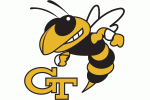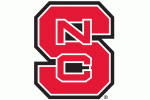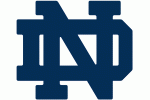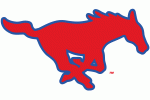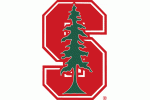The 2015 Tar Heels posted the program's 8th double-digit win season, but sustained success has been elusive.
 My old high school coach used to say, "It's easy to get to the top. It's much harder to stay there." UNC's tortured program history proves the second part right, only it has been hard for UNC to get to the top as well.
My old high school coach used to say, "It's easy to get to the top. It's much harder to stay there." UNC's tortured program history proves the second part right, only it has been hard for UNC to get to the top as well.
Since Carolina began playing football in 1888, there have been eight seasons where the team has posted 10 wins or more. Only twice has the program posted back-to-back double-digit win seasons, and only on two other occasions has the program posted winning records for three consecutive years after a 10+ win season. In other words, the kind of success that sustains a program over the long-term has just not been there for UNC. Here is a look at Carolina's 10-win seasons and what transpired over the next few seasons after:
1914: 10-1
On paper, the 1914 Tar Heels led by coach Thomas Trenchard were one of the strongest in school history. Carolina posted shutouts in five of its first six games and opened the season with 10 straight wins. Only one of those 10 was even close, a 10-9 squeaker at Vanderbilt. Virginia put the damper on UNC's perfect slate with a 20-3 defeat in Richmond, certainly not the last time the Wahoos would put a damper on a special Tar Heel season. Still Carolina outscored its opponents 359-52 for the year.
UNC posted winning records in both 1915 and 1916, going 4-3-1 and 5-4 before influenza outbreaks and World War I suspended football for two years. Carolina would again go 4-3-1 in 1919 before giving way to a 2-9 slate in 1920.
1972: 11-1
It would be 58 years before UNC broke through with 10 or more wins again, as even the best Charlie Justice could manage was nine victories. The Tar Heels had only one winning season in the 1960s before Bill Dooley began to turn the tide in 1970 with an 8-4 mark. The 1971 squad went 9-3 and undefeated in ACC play for UNC's second league title. Led by quarterback Nick Vidnovic on offense and ACC interception leader Lou Angelo on defense, the only blemish on Carolina's record in 1972 was a 29-14 loss at Ohio State. The Heels were again ACC champions and finished the season ranked #12.
In 1973 Carolina stumbled to a 4-7 mark, but recovered to 7-5 before again finishing 3-7-1 in 1975. So after back-to-back ACC titles, UNC had losing records in two of the following three seasons. But UNC rebounded to an ACC championship in 1977, its third of the decade.
1980: 11-1
1981: 10-2
Dick Crum took over for Dooley in 1978 and put perhaps the most heralded UNC team ever on the field in 1980. The roster was filled with players well-known in Carolina football legend: Lawrence Taylor, Steve Streater, and Amos Lawrence were seniors, while underclassmen included names like Tyrone Anthony, Brian Blados, and William Fuller. UNC went unbeaten in league play and the only loss for the season was at #3 Oklahoma. The Tar Heels beat Texas in the Bluebonnet Bowl and finished ranked #10 in the nation, and the 1980 ACC title remains Carolina's last.
The 1981 Carolina squad went 10-2 with the only losses coming to South Carolina and Clemson (doesn't that sound familiar?). UNC lost a squeaker 10-8 to Clemson with the Tigers going on to win the national title in 1981. The Tar Heels finished out the season with a win over Arkansas in the Gator Bowl as the program posted back-to-back double-digit winning seasons for the first time and finished the season ranked #9.
Carolina followed that run with a pair of 8-4 seasons in 1982 and 1983, but Crum's style and lack of recruiting prowess began to catch up to him and he couldn't stockpile talent like Dooley had before him. Three years removed from that run, UNC had slipped back to .500 and three non-winning seasons in his last four sealed Crum's fate. Still the five-year period from 1979-1983 is UNC's second-most successful run with 45 wins in five years.
1993: 10-3
Mack Brown replaced Crum and promptly posted a pair of 1-10 seasons, but athletic director John Swofford stayed the course and Brown began to turn the corner in 1990 with a tie with co-national champion Georgia Tech. The program's steady rise continued until a breakthrough season in 1993. Carolina beat Southern California in Anaheim to open the season and only dropped games to Florida State and at Virginia during the regular season before falling to defending national champion Alabama in the Gator Bowl.
The 1993 season would begin the best five-year run in school history.
1996: 10-2
1997: 11-1
After an 8-4 and 7-5 season in 1994 and 1995, the 1996 Tar Heels again climbed the 10-win mountain behind ACC passing leader Chris Keldorf tossing the ball to Na Brown in his first of three years leading the Tar Heels in receiving while Leon Johnson again led Carolina in rushing. On defense Dre Bly led the nation in interceptions while the defense read like a future NFL draft board. In addition to Bly, the 1996 squad featured Rick Terry, Greg Ellis, Vonnie Holliday, and Brian Simmons, who would all be drafted in the top 2 rounds. Carolina's only setbacks in 1996 were a 13-0 loss at Florida State and a 20-17 loss at Virginia after rising to #6 in the country, which still haunts UNC fans to this day. UNC beat West Virginia in the Gator Bowl and finished ranked #10.
The 1997 Heels had most of the 1996 squad back, especially on defense. Oscar Davenport took over at quarterback and Jonathan Linton posted another 1,000-yard rushing season. On November 8, 1997, the college football world was focused on Kenan Stadium as unbeaten #5 UNC hosted #2 Florida State, including the only appearance ever by College Gameday in Chapel Hill. Carolina stumbled to a 20-3 loss and despite finishing 10-1 and ranked #8, were passed over in the Bowl Alliance in favor of #9 Ohio State. UNC routed Virginia Tech in the Gator Bowl and finished the season ranked #6 by the AP and #4 in the coaches poll for the program's second top-5 finish.
UNC posted the greatest five-year run in school history from 1993-1997, posting 46 wins and only 15 losses, with three 10+ win seasons. But Mack Brown left for Texas prior to the bowl game, and defensive coordinator Carl Torbush was named interim coach. New UNC athletic director Dick Baddour, facing his second major hiring decision in three months following the abrupt retirement of Dean Smith earlier that fall, named Torbush the permanent coach, based in no small part on the 42-3 dismantling of the Hokies.
UNC fell back to a 7-5 record in 1998, followed by a dismal 3-8 record in 1999. Torbush was let go in 2000 after a 6-5 record failed to secure the Heels a bowl game. Again within 3 years of a 10-win season had UNC failed to record a winning record.
* * *
So what does this mean for UNC's long-term fortunes going forward? UNC's tortured history doesn't offer much guidance. Trenchard left UNC in 1915 and Brown in 1997 soon after winning seasons, and Brown's departure (and the naming of Torbush and subsequently John Bunting) is generally thought to have set the program back a decade. Dooley won three ACC titles but posted only one 10-win season, while Crum posted two double-digit seasons that were the high-water mark of his tenure but the program began a steady decline over the remainder of the 1980s before becoming ascendant again in the 1990s. Yet Crum remains UNC's career wins leader. The very early polls suggest UNC will begin the season ranked 15-20 despite returning 8 offensive starters from a record-setting unit. Posting back-to-back double-digit seasons is difficult but the biggest focus for Carolina now should be on avoiding the drop-offs that have plagued the program after the double-digit wins throughout its history.







